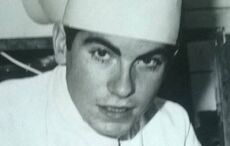A Dublin maternity hospital has been granted a High Court order allowing it to withdraw life-sustaining treatment from a severely brain-damaged newborn baby.
The young mother of the baby boy died shortly after delivering him on Wednesday.
She was 39 weeks pregnant and in cardiac arrest when she arrived at the hospital by ambulance on Tuesday afternoon and needed extensive resuscitation, the President of the High Court, Mr. Justice Nicholas Kearns, was told at a late-night sitting last night.
The Irish Independent reports that the baby was delivered by an emergency perimortem Caesarean Section procedure, after which the mother was transferred to the intensive care unit in another hospital.
The court was told that the mother's condition was critical and that she died shortly after a decision was made to withdraw medical treatment from her.
The baby, whose birth weight was 8 pounds had no respiratory activity after he was born and needed artificial ventilation to stabilise him.
The court was told that he remains on a ventilator and heart support, is severely brain-damaged and is being given morphine, as doctors believe his is suffering pain.
The court also heard that medical experts believe the tot – who has been named by his father – has just a 10 percent chance of surviving longer than 28 days.
But even if the baby overcomes these odds, he is likely to be severely and profoundly physically and mentally disabled, unable to move or swallow and will require life-long care.
It was the opinion of medical experts that because the baby faced such a poor prognosis, his suffering would be prolonged if he was kept on a ventilator.
Doctors said they believed that ceasing his life-sustaining treatment represented his best interests.
Due to the fact that the tot's parents – who are both Irish – are not married and the baby's mother was his sole legal guardian, the hospital required a court order to stop his life support.
The court heard that the child's mother had named her own mother as her next of kin on hospital forms.
After doctors explained the grave situation to the maternal grandmother and the baby's father, both gave the go-ahead to stopping the life-sustaining treatment.
On granting the hospital's application, Mr. Justice Kearns said it was a very sad case and expressed sympathy to the baby's father and grandmother. He also noted that the grandmother had lost her daughter.




Comments